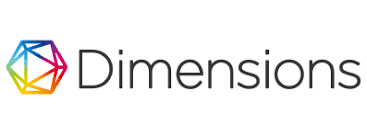SWOT Analysis In Bumi Sawunggaling Hotel Bandung
DOI:
https://doi.org/10.36276/mws.v21i1.304Keywords:
SWOT Analisis, Matriks SWOT, Hotel Bumi SawunggalingAbstract
At this time, Indonesia has entered the New Normal period, or adaptation of new habits is a method carried out by the Indonesian government during the global Covid-19 pandemic. So that people can continue to carry out activities as usual by implementing health protocols during a pandemic. The purpose of this study is to examine the SWOT (Strengths, Weaknesses, Opportunities, and Treats) study at the Bumi Sawunggaling hotel in Bandung, which the researcher will do as a step in exploiting the potential that exists in the Bumi Sawunggaling hotel and as an effort in increasing revenue at Hotel Bumi Sawunggaling. In this study, the method used is qualitative. The qualitative research method, as said by Sugiyono (2009:9), is a research method carried out to examine every condition of an object naturally, and researchers here are the main instrument; data collection techniques are carried out based on the results of observations and interviews.
References
Bradford, R. W., Duncan, Peter J., Tarcy, & Brian,. (2007). Simplified Strategic Planning: A Nonsense Guide for Busy People Who Want Result Fast. New York: Mc Graw Hill.
Friesner, T. History of SWOT Analysis. http://www.marketingteacher.com.
Komaruddin. (2011). Ensiklopedia Manajemen. Edisi ke-4. Bumi Aksara, Jakarta.
Kotler, P,. & Keller, K.L., (2012). Marketing Management. 14th Edition,. Prentice Hall.
Pahl, N., & Richter, A. . (2009). SWOT Analysis – Idea, Methodology and A Practical Approach. Munchen GRIN Verlag GMBH.
Rangkuti, F. (1998). Analisis Swot Teknik Membedah Kasus Bisnis. , Jakarta: PT. Gramedia Pustaka Umum
Riyanto, Y. (2001). Metodologi Penelitian Kualitatif dan Kuantitatif. Surabaya: Unesa University Press
Stringham, S. (2011). Strategic Leadership and Strategic Management: Leading and Managing Chenge, Universe.
Sugiyono. (2009). Metode Penelitian Kuantitatif, Kualitatif, dan R&D. Bandung: CV. Alfabeta
Teece, D. J., & Chandler, A. “Capabilities” Theories of Strategy and Management (2010). Industrial and Corporate Change, 19(2), pp. 297-316, 2010,
Tomphson, J. L, & Frank, M. (2010). Strategic Management: Awareness & Change. South Western Cengage Learning.
Yusuf, A.M. (2014). Metode Penelitian Kuantitatif, Kualitatif dan Penelitian Gabungan. Jakarta: Prenadamedia Group
Hermawan, H. (2018). Dampak Pengembangan Desa Wisatanglanggeran Terhadap Sosial Budaya Masyarakat Lokal. In Seminar Nasional Ilmu Pengetahuan dan Teknologi Komputer (Vol. 4, No. 1, pp. 67-70).
Hermawan, H. (2017). Pengembangan destinasi wisata pada tingkat tapak lahan dengan pendekatan analisis SWOT. Jurnal Pariwisata, 4(2), 64-74.
Downloads
Published
How to Cite
Issue
Section
Categories
License
Copyright (c) 2023 Prima Setia Judha Pranatha; Izza Ulumuddin Ahmad Asshofi

This work is licensed under a Creative Commons Attribution-ShareAlike 4.0 International License.







